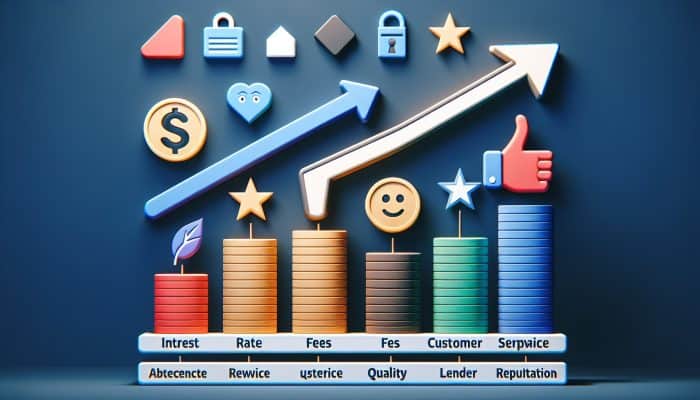Comprehensive Guide to Mastering Debt Consolidation Loans in the UK
What Exactly Are Debt Consolidation Loans and What Is Their Functionality?

A debt consolidation loan is an essential financial instrument for individuals seeking to amalgamate several debts into a single, manageable loan. By opting for this approach, borrowers often benefit from a reduced interest rate compared to the cumulative rate of their original debts, making it far simpler to handle repayments. This method not only streamlines financial management but also empowers individuals to regain command over their financial circumstances. Typical debts that people frequently choose to consolidate include:
- Credit card debt
- <a href="https://limitsofstrategy.com/debt-consolidation-vs-personal-loans-the-essential-uk-guide/">Personal loans</a>
- Store card debt
- Medical bills
- Overdrafts
- Payday loans
- Student loans
By consolidating these various debts, borrowers can effectively manage repayments, alleviating the anxiety associated with multiple payments and ultimately leading to enhanced financial stability over time.
What Significant Benefits Do Debt Consolidation Loans Provide?
The foremost benefit of debt consolidation loans lies in their ability to simplify financial management. Instead of juggling various payments with differing due dates and amounts, borrowers can concentrate on making one monthly payment. This streamlined approach not only simplifies budgeting but can also result in considerable savings over time, especially if the new loan offers a lower interest rate. Moreover, consistently repaying a consolidation loan can positively influence a borrower’s credit score by enhancing their payment history and reducing overall credit utilisation, thereby cultivating a healthier financial profile.
How Can You Effectively Qualify for a Debt Consolidation Loan?
To qualify for a debt consolidation loan in the UK, lenders evaluate several pivotal factors, including the borrower’s credit score, income level, and debt-to-income ratio. Here are crucial steps to enhance your chances of securing approval:
- Review your credit report for any discrepancies and challenge any inaccuracies you find.
- Reduce smaller debts to improve your debt-to-income ratio, showcasing your financial responsibility.
- Maintain a consistent income to demonstrate reliability to potential lenders.
- Consider backing the loan with collateral, particularly if your credit rating is less than ideal.
- Research lenders who accommodate a range of credit histories and financial situations.
By taking these proactive steps, you significantly boost your chances of obtaining loan approval and may also access more favourable loan terms.
In-Depth Analysis of Debt Consolidation Loan Reviews and Expert Perspectives

What Key Insights Do Financial Experts Provide Regarding Debt Consolidation?
Financial experts often highlight that while debt consolidation loans can offer significant financial relief, they are not universally suitable for everyone. Numerous financial advisors advocate for a thorough evaluation of one’s financial standing before embarking on the consolidation path. For instance, a borrower consolidating £15,000 of credit card debt into a personal loan with a substantially lower interest rate could save thousands throughout the repayment period. However, experts also warn against the assumption that consolidation alone will rectify underlying financial habits, urging borrowers to adopt improved budgeting practices alongside consolidation for lasting financial health.
How Should You Evaluate Debt Consolidation Loan Reviews?
When assessing reviews for debt consolidation loans, it is essential to consider the credibility of the source, the experiences of the reviewer, and the relevance of those experiences to your particular situation. Reviews written by financial advisors or consumer advocacy groups generally carry more weight than personal anecdotes lacking context. Common shortcomings in reviews may include anecdotal evidence that does not accurately represent the broader customer experience. Thus, adopting a balanced approach to evaluate feedback—taking into account both positive and negative aspects—is crucial for making well-informed decisions that align with your financial goals.
What Essential Factors Should You Include in Loan Ratings Analysis?

Loan ratings evaluate several crucial factors that significantly affect a borrower’s decision-making process. Key elements include interest rates, fees, customer service quality, and the overall reputation of the lender. To effectively compare ratings, potential borrowers should:
- Seek out reviews that specifically discuss loan terms and conditions.
- Compare interest rates across various lenders to identify the most competitive options available.
- Assess customer service ratings, as responsive support can be vital throughout the repayment period.
- Investigate any hidden fees or charges that may impact the total cost of the loan.
Understanding these factors empowers borrowers to make informed comparisons, guiding them towards the most suitable lenders and loan options tailored to their individual needs.
How Can Expert Insights Inform Your Debt Consolidation Decisions?
Expert insights can be immensely beneficial when weighing the pros and cons of debt consolidation options. By utilising professional advice, individuals can gain clarity on whether consolidation aligns with their financial aspirations. For example, experts may recommend specific lenders based on a borrower’s unique credit profile or suggest alternative strategies if they believe consolidation may not be advantageous. Furthermore, comprehending the broader implications of debt consolidation, such as its potential effects on credit scores and future borrowing capabilities, can empower individuals to make informed choices tailored to their financial situations.
Thorough Understanding of Debt Consolidation Loans in the UK
What Steps Are Involved in Applying for a Debt Consolidation Loan?
Applying for a debt consolidation loan encompasses several critical steps designed to adequately prepare the borrower. The initial step is to assess your current debts and determine the total amount owed. Once you have a clear understanding of your financial landscape, the next stage is to identify a lender that presents competitive rates. The application process generally requires the following documentation:
- Proof of identity (e.g., passport, driving licence)
- Proof of address (e.g., utility bills, bank statements)
- Income verification (e.g., payslips, tax returns)
- Details of existing debts (e.g., statements from creditors)
Completing the application accurately and comprehensively can significantly elevate the likelihood of receiving loan approval.
What Should You Anticipate After Receiving Loan Approval?
Once your debt consolidation loan is approved, the subsequent steps involve utilising the loan amount to settle your existing debts. This often occurs directly, with the lender transferring funds to your previous creditors on your behalf. Following this disbursement, you will commence repaying the new loan in accordance with the agreed-upon terms. It is vital to adhere to the repayment schedule diligently, as missed payments can have severe repercussions, including damage to your credit profile. Regularly reviewing your repayment strategy ensures that you remain on track and fulfil your financial commitments.
What Repayment Structures Are Available for Debt Consolidation Loans?
Repayment structures for debt consolidation loans can differ significantly based on the lender’s policies. Common repayment options include fixed monthly payments, which provide predictability, and variable rates that may fluctuate over time. Some lenders also offer the flexibility of early repayment without penalties, granting borrowers greater control over managing their loans. Understanding these repayment structures is crucial, as they significantly affect the loan’s manageability throughout its duration. Before selecting a loan, consider which repayment structure aligns best with your financial habits and long-term objectives to ensure a sustainable repayment plan.
Recognising Potential Risks Tied to Debt Consolidation Loans
Can Debt Consolidation Result in Increased Debt Levels?
While debt consolidation loans can deliver immediate financial relief, they may also lead to the accumulation of additional debt if not managed prudently. Borrowers might be tempted to utilise credit cards that were previously cleared, creating a scenario where they have both the new loan and additional debts to manage concurrently. This underscores the necessity for responsible financial practices, such as diligent budgeting and refraining from unnecessary credit usage post-consolidation. Being cognisant of this risk empowers individuals to maintain discipline and commitment to their long-term financial wellness.
What Are the Potential Drawbacks of Consolidation?
Possible disadvantages of debt consolidation loans include the risk of incurring higher overall costs if the interest rate on the new loan does not provide a substantial reduction compared to previous debts. Furthermore, if borrowers neglect to make timely payments on the consolidation loan, it can adversely impact their credit score, negating the intended benefits of consolidation. It is crucial to grasp these risks; thus, borrowers should ensure they fully comprehend the terms of their new loan and remain vigilant regarding repayment schedules to effectively mitigate these potential downsides.
How Can You Avoid Common Errors Associated with Debt Consolidation?
To steer clear of common pitfalls related to debt consolidation loans, it is imperative to meticulously scrutinise all loan terms before committing. This includes understanding the interest rate, associated fees, and any potential penalties for missed payments or early repayments. Borrowers should also conduct thorough research into potential lenders to verify their reputability and ensure they provide clear, transparent terms. Engaging in financial education and seeking guidance from professionals can further empower individuals to make informed choices that lead to significant financial improvement and stability.
What Are the Consequences of Defaulting on a Consolidation Loan?
Defaulting on a consolidation loan can result in serious repercussions. This may severely damage your credit score, complicating future credit applications. Additionally, lenders may initiate legal actions to recover the owed amount, which could include wage garnishment or asset seizure. To mitigate these risks, borrowers should prioritise making timely repayments and proactively communicate with their lenders if they face financial difficulties, as many lenders offer assistance or alternative arrangements for borrowers experiencing hardships.
Evidence-Based Advantages of Debt Consolidation Loan Reviews and Ratings
How Can Reviews Assist You in Selecting the Right Loan?
Reviews provide invaluable insights into the experiences of other borrowers, aiding prospective clients in assessing lender reliability and overall customer satisfaction. For example, a borrower may discover that a lender known for exemplary customer service can greatly enhance the repayment experience. Real-world examples illustrate that borrowers who thoroughly researched reviews before committing often reported higher satisfaction levels and fewer issues after securing a loan. Therefore, leveraging these insights can facilitate more informed choices and contribute to a smoother debt consolidation journey.
What Do Ratings Reveal About Loan Quality?
Ratings act as a quick reference for comprehending essential aspects of a debt consolidation loan, including interest rates and fees. A high rating typically indicates a competitive offering, whereas a low rating may signal potential issues or hidden costs. Expert evaluations suggest that borrowers should not rely solely on ratings but should also consider them alongside comprehensive research and their specific circumstances. By interpreting these ratings thoughtfully, individuals can make more informed decisions that align with their financial goals and requirements.
How Can You Utilise Reviews and Ratings Effectively?
To make effective use of reviews and ratings in your decision-making process, focus on recent feedback, as it is more likely to reflect the current service standards of lenders. Look for patterns in comments, such as recurring strengths or weaknesses highlighted by multiple reviewers, as these can provide deeper insights. Additionally, consider multiple sources for a comprehensive overview, including consumer review platforms, financial blogs, and online forums. This multifaceted approach ensures you are well-informed and empowered to select the most suitable lender for your unique needs.
What Limitations Exist in Reviews and Ratings?
While reviews and ratings can deliver valuable guidance, they inherently possess limitations. They may not accurately reflect your specific situation, as individual experiences can vary significantly. Biases—whether positive or negative—can also distort perceptions, and often, reviews may become outdated over time. Therefore, it is essential to supplement reviews with your own thorough research and financial analysis to arrive at well-informed conclusions regarding potential loans. Understanding these limitations can help you navigate the debt consolidation landscape more effectively and judiciously.
How Do Research-Driven Benefits Affect Loan Decisions?
Research-driven benefits furnish evidence-based insights into the advantages of debt consolidation loans, empowering borrowers to make informed decisions. For example, studies showing that borrowers who consolidate their debts typically save on interest payments can direct individuals towards favourable outcomes. Consequently, understanding these research-backed benefits enables individuals to recognise the potential positive impacts of consolidation, motivating them to engage in the process with confidence and clarity, ultimately fostering a healthier financial future.
Proven Strategies for Evaluating Debt Consolidation Loan Reviews and Ratings
How Can You Identify the Best Debt Consolidation Loans in the UK?
Identifying the best debt consolidation loans in the UK necessitates a strategic approach to comparing various options. Begin by assessing interest rates from different lenders and evaluating the overall fees associated with each loan. Ensure you comprehend the lender’s reputation by reviewing customer feedback and checking their credentials with regulatory bodies. Additionally, consider employing online comparison tools that streamline this process and offer side-by-side evaluations of loan alternatives. This thorough research will guarantee that you find a loan that aligns perfectly with your financial circumstances and aspirations.
What Are the Best Practices for Reading Reviews?
Best practices for reading reviews include seeking a diverse mix of feedback from various sources to gain a well-rounded perspective. Concentrate on detailed reviews that provide context regarding the reviewer’s financial situation and the specifics of their loan, as this can help you relate their experiences to your own. Exercise caution when assessing overly positive or excessively negative reviews, as these may not accurately represent the average customer experience. By critically evaluating reviews, you can enhance your understanding of potential lenders and their offerings, leading to more informed decisions.
How to Make a Thoughtful Decision Based on Ratings?
To arrive at a thoughtful decision informed by ratings, first, understand what those ratings specifically evaluate, such as interest rates, fees, and borrower feedback. Familiarise yourself with how ratings are calculated, and consider their implications for your financial situation. It may also be beneficial to cross-reference ratings with specific customer reviews to gain deeper insights into the lender’s performance in real-world scenarios. By linking ratings with comprehensive research, you can derive meaningful insights that enhance your decision-making regarding debt consolidation loans.
How to Assess Lender Credibility and Security?
Evaluating lender credibility involves scrutinising their regulatory status, customer service ratings, and security measures for safeguarding personal financial information. In the UK, reputable lenders should be authorised and regulated by the Financial Conduct Authority (FCA). Furthermore, assess customer feedback regarding their experiences with lender transparency and support. Ensuring that a lender prioritises data security and maintains a strong reputation can significantly enhance your comfort level and confidence when proceeding with a debt consolidation loan.
What Impact Do Customer Testimonials Have on Decision Making?
Customer testimonials offer valuable insights into real-life experiences with lenders and can significantly influence decision-making processes. Positive testimonials can underscore a lender’s reliability and high customer satisfaction, while negative feedback might reveal potential concerns to consider. Testimonials frequently reflect the consistency of service, which is crucial for borrowers navigating their repayment journeys. Therefore, considering these testimonials alongside reviews and ratings can help create a comprehensive picture of how a lender operates and whether they are the right fit for your debt consolidation needs.
Frequently Asked Questions About Debt Consolidation Loans
What Is a Debt Consolidation Loan?
A debt consolidation loan merges multiple debts into a single loan, typically offering a lower interest rate, thus simplifying repayment and financial management.
Who Is Eligible for a Debt Consolidation Loan?
Eligibility generally depends on your credit score, income, and debt-to-income ratio, which lenders use to evaluate your suitability.
Are Debt Consolidation Loans a Smart Financial Move?
They can be advantageous for streamlining payments and reducing interest rates; however, they require responsible financial habits to prevent incurring new debts.
What Should I Consider When Choosing a Lender?
Look for lenders that provide competitive interest rates, excellent customer service ratings, and clear, transparent terms. Verify their regulatory status for added credibility.
Can I Secure a Debt Consolidation Loan with Poor Credit?
Yes, some lenders specialise in loans for individuals with poor credit; however, be prepared for higher interest rates and less favourable terms.
How Long Does It Take to Get Approved?
Approval times vary by lender, but many loans can be approved within a few days, depending on the completeness of your application and documentation.
What Fees Should I Expect with Debt Consolidation Loans?
Fees may include origination charges, late payment penalties, and early repayment fees. Always scrutinise the loan terms for any hidden costs.
Can I Continue Using Credit Cards After Consolidating My Debt?
While it is possible, responsible financial practice generally advises against using credit cards after consolidation to prevent incurring additional debt.
What Are the Consequences of Missing a Payment?
Missing payments can lead to late fees, increased interest rates, and potential damage to your credit score, making it crucial to keep on top of repayments.
Is Debt Consolidation the Same as Bankruptcy?
No, debt consolidation is a method for managing debt, whereas bankruptcy is a legal process that can lead to asset loss and long-term negative credit implications.
Connect with Us on Facebook!
This Article Was First Found On: https://www.debtconsolidationloans.co.uk
The Article Debt Consolidation Loan Reviews: A Guide for the UK Was Found On https://limitsofstrategy.com

